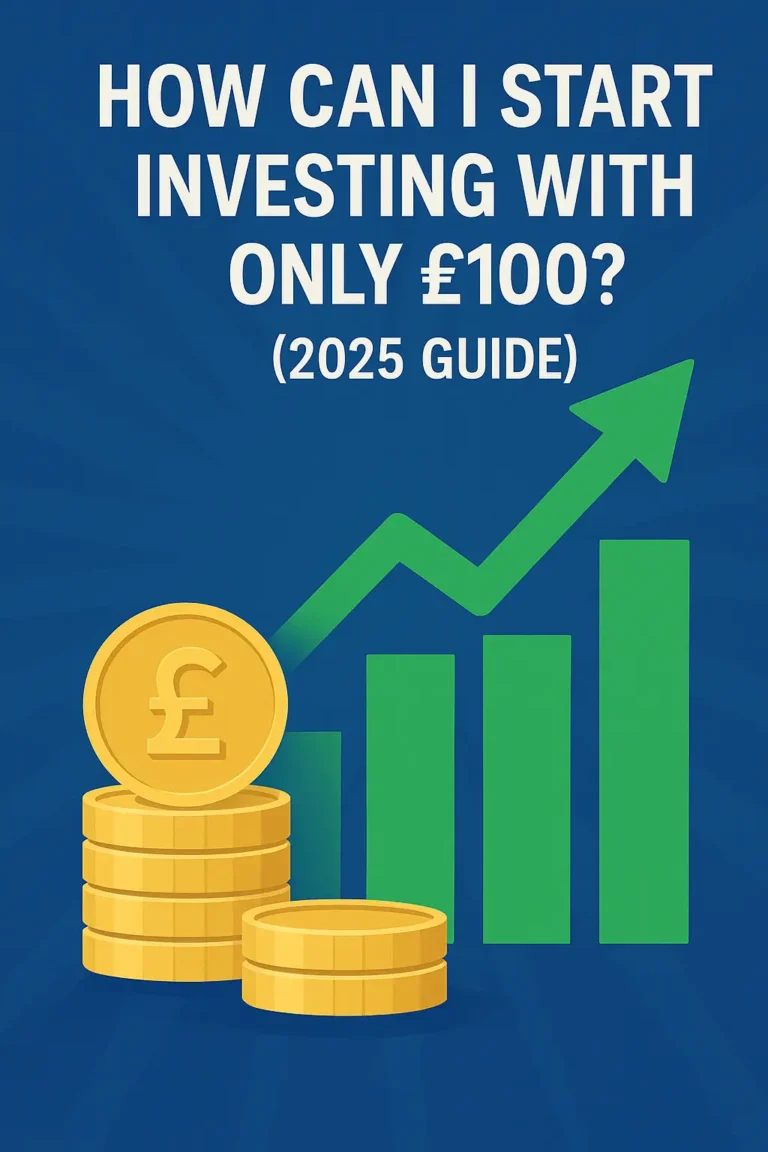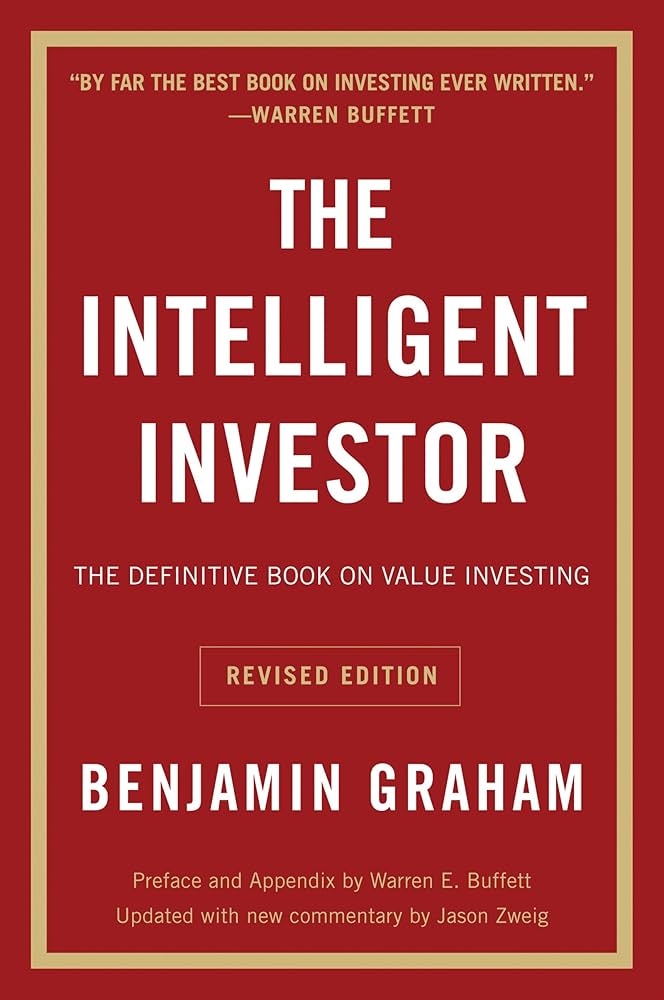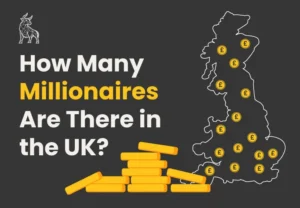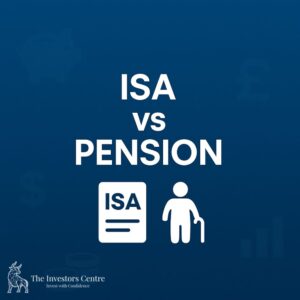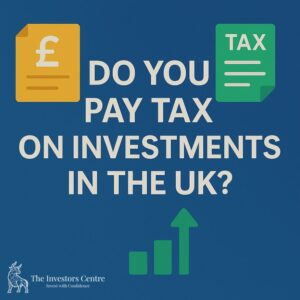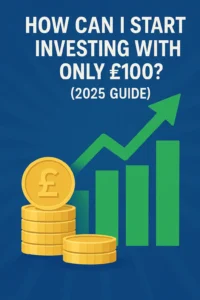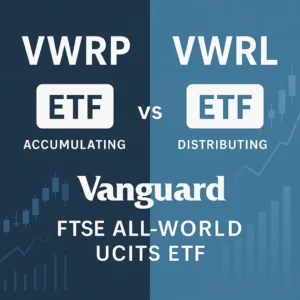Profile

Co-Founder
Thomas brings extensive experience in financial analysis and investment research. With a strong background in both institutional and retail investment sectors, Thomas ensures all content meets the highest standards of accuracy and relevance.
Follow on Twitter Connect on LinkedIn"Every piece of investment advice should be grounded in solid research and practical application. My role is to ensure our content provides real value to investors at every level."
My Favourite Writes:
Profile

Co-Founder
Dom is an experienced retail investor, learning his craft in what he likes to call the "hard way". Through many of these lessons he has crafted himself a sound investment strategy that has enabled him to make investing into a business not just a hobby.
Follow on Twitter"Financial clarity and integrity are the cornerstones of everything we do. We're here to ensure that your investment journey is built on a solid financial understanding and a sound strategic foundation."
My Favourite Writes:
Profile

Co-founder & Senior Financial Platform Analyst
Adam founded The Investors Centre in 2023 and has personally tested 50+ UK financial platforms. An active investor since 2013, he has authored 200+ platform guides and oversees all testing methodology.
Follow on Twitter Connect on LinkedIn"Investment is about more than just numbers; it's about strategy, research, and the willingness to adapt."
My Favourite Writes:
How We Test
Our Commitment to Accuracy
At The Investors Centre, we maintain the highest standards of accuracy and reliability in all our investment education content. Every article undergoes rigorous fact-checking and review processes.
Our Testing & Verification Process
- Primary Research: We gather data directly from official sources including company reports, regulatory filings, and government databases.
- Platform Testing: Our team personally tests and evaluates investment platforms, creating accounts and documenting real user experiences.
- Expert Analysis: Content is reviewed by experienced investors and financial professionals within our team.
- Data Verification: All statistics, figures, and claims are cross-referenced with multiple authoritative sources.
- Regular Updates: We review and update content quarterly to ensure information remains current and accurate.
Review Standards
- Independence: We maintain editorial independence and disclose any potential conflicts of interest.
- Transparency: Our testing methodology and evaluation criteria are clearly documented.
- Objectivity: Reviews are based on measurable criteria and standardized testing procedures.
Corrections Policy
If errors are identified, we correct them promptly and note significant updates at the bottom of articles. Readers can report inaccuracies to our editorial team at info@theinvestorscentre.co.uk
Last Review Date
This article was last fact-checked and updated on: December 10, 2025
Disclaimer
Educational Purpose Only
All content on The Investors Centre is provided for educational and informational purposes only. It should not be construed as personalised investment advice, financial advice, or a recommendation to buy, sell, or hold any investment or security.
No Financial Advice
We are not authorised by the Financial Conduct Authority (FCA) to provide investment advice. Content on this website does not constitute financial advice, and you should not rely on it as such. Always consult with a qualified financial advisor or professional before making investment decisions.
Investment Risks
Investing carries inherent risks, including the potential loss of principal. Past performance does not guarantee future results. The value of investments can go down as well as up, and you may not get back the amount originally invested.
Accuracy & Completeness
While we strive to provide accurate and up-to-date information, we make no representations or warranties of any kind, express or implied, about the completeness, accuracy, reliability, suitability, or availability of the information contained on this website.
Third-Party Content & Links
This website may contain links to third-party websites and references to third-party products or services. We do not endorse, control, or assume responsibility for any third-party content, privacy policies, or practices. Users access third-party sites at their own risk.
Affiliate Disclosure
Some links on this site may be affiliate links. If you click on these links and make a purchase or sign up for a service, we may receive a commission at no additional cost to you. This does not influence our editorial content or reviews.
Personal Responsibility
Any action you take upon the information on this website is strictly at your own risk. We will not be liable for any losses or damages in connection with the use of our website or the information provided.
Regulatory Notice
Investment products and services featured on this website may not be available in all jurisdictions or to all persons. Users are responsible for complying with local laws and regulations.
Contact Information
For questions about this disclaimer or our content, please contact:
Email: info@theinvestorscentre.co.uk
Last Updated
This disclaimer was last updated on: August 2025






Does not include ISA deposits.
Quick Answer: How Do You Start Investing with £100?
Open an account on a low-minimum platform like eToro or a micro-investing app. Choose simple investments like ETFs or fractional shares, set realistic goals, and automate deposits. Even £100 gets you started building habits and compounding returns over the long run.
Introduction
You don’t need thousands to start building wealth. Here’s how UK beginners can invest just £100 in 2026 — and actually make it count.
What Does Investing Actually Mean?
Investing means putting money into assets—like stocks, funds, or peer lending—that you expect will grow over time. Unlike saving, which simply protects cash, investing aims to build wealth by harnessing long-term market returns, even from a modest £100 start.
Why Should You Consider Investing Even with Just £100?
Starting with £100 builds essential habits early. It taps into compounding, letting small sums grow into much more over years. Even tiny investments teach patience, risk tolerance, and strategy—skills that pay off massively once you can invest larger amounts.
What's Changed in 2026?
More UK platforms now support fractional shares, making it even easier to diversify with small sums. Micro-investing apps like Plum and Moneybox continue to improve automation features. ISA allowances remain at £20,000, meaning your gains can grow tax-free. eToro and Trading 212 still lead for low-cost investing with no commission on stocks and ETFs. The investing landscape is increasingly beginner-friendly — there’s never been a better time to start small.
What Can You Invest £100 In?
£100 is more than enough to begin. From fractional shares to pooled funds, there are plenty of beginner-friendly options. Picking the right mix depends on your goals, how hands-on you want to be, and your comfort with risk and market swings.
Stocks and Shares
Buying stocks lets you own pieces of individual companies. Many platforms offer fractional shares, so your £100 can spread across top brands. Stocks bring higher growth potential but also bigger ups and downs, so diversify wisely even with small amounts.
ETFs and Mutual Funds
ETFs and mutual funds pool money from many investors to buy broad baskets of assets. This instantly diversifies your £100 across dozens or hundreds of stocks or bonds, reducing risk compared to buying a single company.
Peer-to-Peer Lending
Peer-to-peer platforms let you lend your money directly to individuals or small businesses in exchange for interest. While returns can be attractive, defaults happen—so understand the risks and perhaps keep this as a small slice of your portfolio.
Micro-Investing Apps
Micro-investing apps like Plum or Moneybox round up your spare change or automate small deposits into funds. With just £100, you can quickly get diversified exposure without complex choices, making them ideal for first-time UK investors.
| Investment Option | Typical Returns (p.a.) | Risk Level | Key Benefits |
|---|---|---|---|
| Stocks & Shares | 6-8% (long-term avg) | High | Potential for strong growth; own pieces of top companies |
| ETFs / Funds | 5-7% | Medium | Diversified instantly; simple “set and forget” investing |
| P2P Lending | 4-6% | Medium-High | Earn interest from loans; more passive income style |
| Micro-Investing | 4-6% | Medium | Easy apps automate small investments; great for first £100 |
How Should You Set Your Investment Goals?
Before investing your £100, be clear on what you want. Goals shape whether you pick stable funds or riskier stocks. Decide if it’s money you’ll need soon, or cash you can let grow for years, and match your strategy to your timeframe.
What’s the Difference Between Short vs Long-Term Goals?
Short-term goals (1-3 years) suit safer options like diversified funds. For goals beyond five years, stocks and ETFs can ride out market swings for better growth. Knowing your horizon stops you panic-selling if markets dip early on.
How Much Risk Can You Handle?
Some people lose sleep over small losses; others can shrug off big swings. Be honest about how you’d feel if your £100 dropped by 20% temporarily. Choose investments that fit your nerves as much as your financial targets.
How Can You Start Investing with Just £100?
It’s simpler than ever. Use low-minimum platforms or micro-investing apps, pick your investments, and fund your account. Even £100 puts you on the path to long-term growth, building habits that pay off when you can invest more.
How Do You Choose the Right Platform?
Look for low fees, fractional shares, and simple apps. eToro, Trading 212, and Moneybox are popular UK choices. Check they’re FCA regulated for peace of mind, then compare their tools to see which suits your style.
What’s Involved in Opening an Account?
You’ll submit ID for verification, link a bank account, and answer a few questions about experience and risk tolerance. It’s usually done in under 15 minutes. Once approved, you can deposit your £100 and start choosing investments.
How Do You Make Your First Investment?
Decide what to buy, enter the amount, and confirm the order. Many platforms let you start with just £1. Keep it simple: maybe a broad ETF or fractional shares in companies you trust. Then watch your money start working for you.
| Platform | Minimum Deposit | Key Features | FCA Regulated? |
|---|---|---|---|
| eToro | $25 | Fractional shares, copy trading, free stock & ETF trades | Yes |
| Trading 212 | £1 | No commission, easy app interface, quick funding | Yes |
| Moneybox | £1 | Rounds up spare change, invests in ETFs automatically | Yes |
| Freetrade | £0 | Free stock trades, simple to use, ISA options available | Yes |
What Practical Tips Help Small Investors?
Even with just £100, smart habits matter. Spread your money across different assets, invest regularly to smooth out market ups and downs, and keep fees low. Small tweaks now help your money work harder and build real wealth over time.
Why Diversify Even with £100?
Putting all £100 into one stock is risky. Using ETFs or fractional shares means your small sum spreads across dozens of companies. Diversification reduces the chance a single poor performer wipes out your gains, keeping your investment journey steadier.
| Asset Type | Allocation | Example Investment | Why It's Included |
|---|---|---|---|
| Global ETF | £40 (40%) | Vanguard FTSE All-World ETF (VWRL) | Broad exposure to 3,000+ companies worldwide; low-cost diversification. |
| UK Fractional Shares | £25 (25%) | £5 in each of 5 well-known UK companies | Direct ownership in trusted brands; adds a local tilt. |
| Bond Fund | £15 (15%) | iShares UK Gilts 0-5yr ETF | Reduces volatility with fixed-income exposure. |
| P2P Lending | £10 (10%) | Via a platform like Funding Circle | Adds alternative income; higher risk but uncorrelated. |
| Cash Reserve / Buffer | £10 (10%) | Held in app wallet or instant-access account | Safety cushion for volatility or next deposit cycle. |
Disclaimer: This portfolio is provided for illustrative and educational purposes only. It is not financial advice. Always do your own research or consult a qualified financial advisor before making investment decisions.
How Does Regular Investing Grow Your Wealth?
Investing £20 each month adds up faster than waiting to save a lump sum. Consistent contributions let you buy during both high and low markets, averaging out costs over time — a proven way to build wealth without stressing over perfect timing.
How Can You Keep Fees Low?
High fees eat into gains, especially on small investments. Look for platforms with zero commission, no monthly account charges, and low fund costs. Even a 1% fee can mean thousands less over decades, so keep more of your money working for you.
What Mistakes Should You Avoid as a Beginner?
Many new investors chase hype stocks, overlook costs, or panic-sell at the first dip. Staying patient, managing costs, and sticking to your plan helps avoid expensive errors — ensuring your £100 grows instead of evaporating from emotional decisions.
Are You Overlooking Platform Fees?
A platform might offer “free trades” but charge hidden FX or withdrawal fees. Always check their full fee schedules. Small costs matter more on a £100 portfolio, so shop around to keep more of your money invested.
Why Chasing Big Returns Can Backfire
High-flying stocks or risky bets promise huge gains but often crash just as fast. Without proper research, you might lose your entire £100. Slow, steady growth via diversified funds usually beats chasing quick wins you can’t afford to lose.
What Resources Can Help You Learn to Invest?
Knowledge pays the best dividends. Use free guides, courses, and practice tools to build confidence before risking more money. Even small £100 investments grow smarter when backed by solid understanding of markets, diversification, and the power of long-term compounding.
Best Websites & Free Courses
Try sites like MoneySavingExpert or Investopedia for basics, or check FCA’s resources on investing safely. Many UK banks also offer beginner webinars. Free content means you can start learning immediately without risking a pound.
61% of retail CFD accounts lose money when trading CFD’s with this provider.
Simulators and Practice Apps
Virtual trading platforms like Trading 212’s demo or Investopedia’s simulator let you test strategies with fake money. These tools teach how markets move, helping you avoid rookie mistakes when your real £100 is on the line.
Books & Blogs for New Investors
“The Intelligent Investor” by Benjamin Graham is a classic, while UK blogs like Monevator break down investing with plain examples. Short, regular reads keep you learning without overwhelm, building confidence for bigger sums later.
Final Thoughts: Is £100 Enough to Start Investing?
Absolutely. £100 is plenty to open your first investment account, buy fractional shares or ETFs, and start building crucial habits. What matters more is getting started — learning the process now pays off massively when you’re ready to invest even more.
Trade Smarter, not Harder
- Copy Trading
- Competitive Fees
- Multi-Asset Platform
61% of retail CFD accounts lose money when trading CFD’s with this provider.
FAQs
Can you really start investing with just £100 in the UK?
Yes. Many UK platforms now offer low or no minimums, letting you buy fractional shares or ETFs. Starting with £100 helps you learn the ropes, so you’re ready to scale up when you can invest more.
What’s the best investment for beginners with £100?
A low-cost, diversified ETF is often a smart first choice. It spreads your money across many companies, reducing risk. Micro-investing apps also make it easy to start small without picking individual stocks.
Is investing £100 worth it?
Definitely. It builds discipline and taps into compounding, even if the initial returns seem small. Over years, consistent investing—even from tiny sums—can snowball into significant wealth.
Can I lose all my £100 if I invest?
Yes. All investing carries risk, especially with individual stocks. Diversifying into funds reduces this, but never invest money you can’t afford to lose. Education and realistic goals keep your risk under control.

